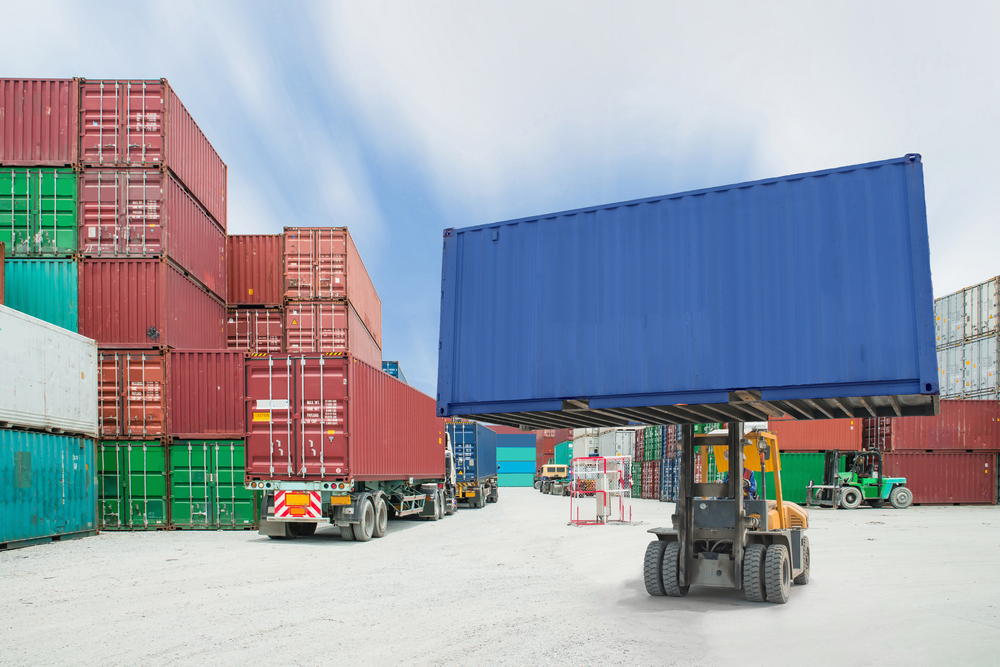Andean Agricultural Forum proposes regional agenda to boost trade and exports

Bogota, 29 January 2021 (IICA). Amidst the overwhelming circumstances resulting from the pandemic, agricultural exports have withstood the shock better than total foreign sales of goods. Between January and October 2020, countries such as Bolivia, Colombia and Ecuador increased their agricultural exports by 2.32%, 3.51% and 5.7%, respectively, compared to the same period in 2019. These figures confirm the key role of agriculture and agricultural trade for economic recovery in the Andean Region post Covid-19.
To fulfill this potential, countries of the region must take steps to recover lost markets, consolidate their presence in destination markets where they were able to increase their exports, and foster diversification – challenges that existed even before the pandemic, given the concentration of exports in third markets and the limited amount of intraregional trade carried out in the Andean region.
These were a few of the conclusions reached during the Third Session of the Andean Agricultural Forum, organized by Colombia’s Ministry of Agriculture and Rural Development with support from the Inter-American Institute for Cooperation on Agriculture (IICA) and other organizations.
The meeting brought together high-level agricultural and trade authorities, as well as representatives of the agribusiness sector and cooperation agencies, with the aim of identifying opportunities and mechanisms for developing and reactivating regional agricultural trade, as well as identifying the agricultural chains with the greatest marketing potential in Andean nations.
“I urge us all to take decisive steps as a region, so that we can become a neighborhood that is open to agricultural trade and integration, which could be the key to growth. I would like to believe that achieving a common Andean agricultural market is not that far off in the future; we can reach agreements to make this dream a reality”, stated Juan Gonzalo Botero, Deputy Minister of Agricultural Affairs of Colombia.
Boosting trade and exports
Participants from the public and private sectors identified key aspects that would allow for boosting intraregional trade and exports, as well as exports to third markets, namely: harmonizing sanitary and phytosanitary regulations, streamlining customs clearance processes, simplifying procedures, automating and digitizing processes such as the acceptance of electronic certificates, and conducting fewer physical inspections.
They also agreed on the importance of advancing the implementation of health diplomacy strategies to prevent trade measures related to health, safety and quality from becoming trade barriers, as well as to improve competitiveness, value-adding, political will, public-private partnerships and the joint work carried out by the Andean Community (CAN).
Diego Sebastián Llosa, Deputy Minister of Foreign Trade and Tourism of Peru, remarked that “efforts to strengthen the Andean Community must focus on diversifying our export supply and destination markets, but they must also involve regional integration, which is crucial in order to create intraregional trade and develop regional value chains within the agriculture sector”.
Edwin Vásquez de la Bandera, Undersecretary for Trade Negotiations and Economic Integration of Ecuador, agreed on the importance of developing a strong and powerful integration agenda to enable “CAN to become a tool for strengthening the agriculture sector and driving economic and social development in our countries”.
Reinaldo Díaz, President of the National Agricultural Confederation of Bolivia (CONFEAGRO), stated that achieving those objectives would require the implementation of incentive measures, such as tax exemptions on the import of machinery and inputs, in order to generate “harmonious growth, which would allow for accessing markets and improving the quality of life of our populations”.
Manuel Otero, Director General of IICA, stated that “international trade plays a strategic role for the region’s food security and economic recovery, fostering the availability of safe, nutritious and high-quality food, the generation of foreign exchange to fund humanitarian assistance and socioeconomic recovery programs, and income generation for the production and business sectors, while fostering the inclusion of rural women and youth”.

On the other hand, Daniel Rodriguez, Manager of IICA’s International Trade and Regional Integration Program, pointed out that it is crucial for the region to implement a strategy that would allow for recovering markets in which its presence had decreased and consolidating those in which it had increased. He also underscored the importance of continuing to work on diversification to reduce the risk of depending on a limited number of countries, while strengthening intraregional trade. “This public-private effort must focus on market access and trade policy, strengthening competitiveness and implementing business strategies that facilitate diversification”, he stressed.
The fourth and final session of the forum will be held on February 5. The conclusions are expected to serve as input for the development of a regional agricultural agenda for cooperation and integration among CAN countries, taking into account the context of the pandemic and the need to reactivate the Andean agricultural sector.
More information:
Institutional Communication Division of IICA.
comunicacion.institucional@iica.int